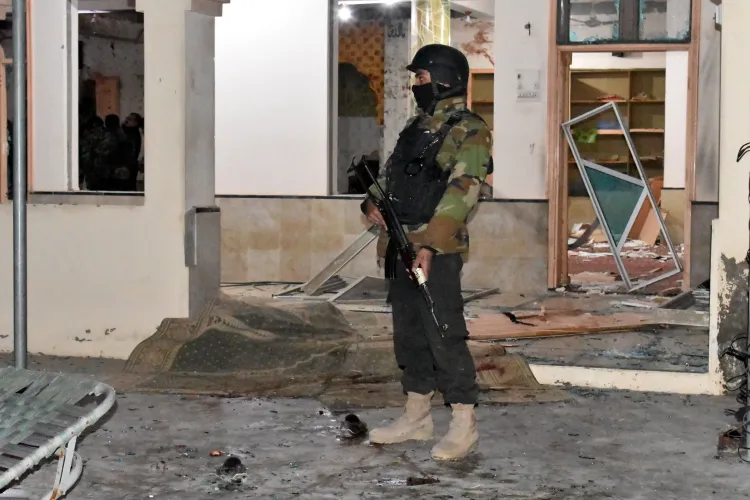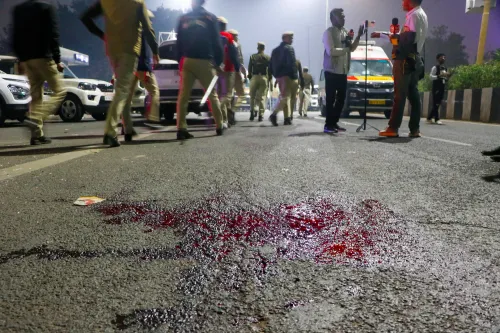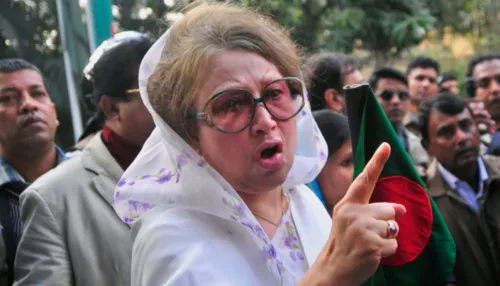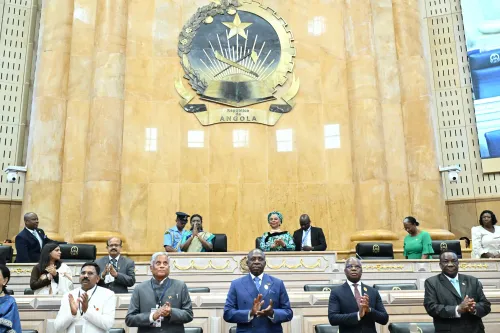Is Pakistan Using Jihadist Proxies to Quell Political Dissent?

Synopsis
Key Takeaways
- Jihadist proxies are being used to suppress political dissent in Pakistan.
- The Quetta bombing has raised serious concerns about the country's security.
- There is a growing perception that Islamabad cannot control its own territory.
- The attack is seen as a political message linked to local dynamics.
- Criticism of the government’s response suggests a lack of genuine commitment to combatting extremism.
Islamabad, Sep 9 (NationPress) The recent suicide bombing outside Quetta's Shahwani Stadium, claimed by Islamic State Khorasan Province (ISKP), highlights Pakistan's extensive strategy of employing jihadist proxies to stifle political dissent domestically while simultaneously portraying itself as a victim of terrorism internationally, as detailed in a report on Tuesday.
Last week, ISKP, a faction of the Daesh terror group known for targeting religious sites and security convoys, attacked a nationalist political gathering in Balochistan's capital, Quetta.
The suicide bombing on September 2, occurring just hours after the conclusion of the Balochistan National Party-Mengal (BNP-M) rally, resulted in 15 fatalities and left 32 individuals injured.
According to a Quetta-based analyst quoted by the leading Pakistani daily Dawn, 'Daesh typically does not target political meetings in Balochistan. This indicates that someone intended for this message to be conveyed.'
The report elaborated that 'the Quetta blast, this time linked to politics, raises alarms about Pakistan's inability to manage its own territory. For Tehran, still recovering from ISKP's bombing in Kerman earlier this year, the incident underscores that militants can operate across the border with relative ease.'
This is not the first time such concerns about Pakistan's internal dynamics have surfaced.
In his book 'Descent into Chaos', Pakistani journalist Ahmed Rashid pointed out that post-2001, Pakistan’s Inter-Services Intelligence (ISI) positioned itself as a counter-terror ally to Washington while simultaneously providing shelter to Taliban fighters by fostering groups like Lashkar-e-Taiba.
Renowned American political scientist C Christine Fair has characterized this contradictory policy as fighting some terrorists while supporting others.
According to the Centre for Research and Security Studies in its 2024 annual report, 'this kind of calibrated violence has been previously observed in Pakistan. Islamabad is increasingly relying on federally-backed paramilitaries and proxies to handle dissent in its provinces. The Quetta bombing seems to follow this same pattern, albeit with ISKP serving as the instrument.'
The report also noted that Baloch armed groups are already signaling potential retaliation. A spokesperson for the Baloch Liberation Army (BLA) stated that the attack illustrates how Islamabad employs Daesh against their people.
Security officials harbor private concerns about a possible uptick in ambushes targeting Pakistani troops in Quetta, Gwadar, and along the China–Pakistan Economic Corridor (CPEC) routes.
Analysts criticized the condemnations of the suicide attack by Pakistani Prime Minister Shehbaz Sharif and President Asif Ali Zardari, labeling their statements as insincere.
One columnist for Dawn remarked, 'You cannot profess to combat extremism while simultaneously utilizing extremists as your tools.'









